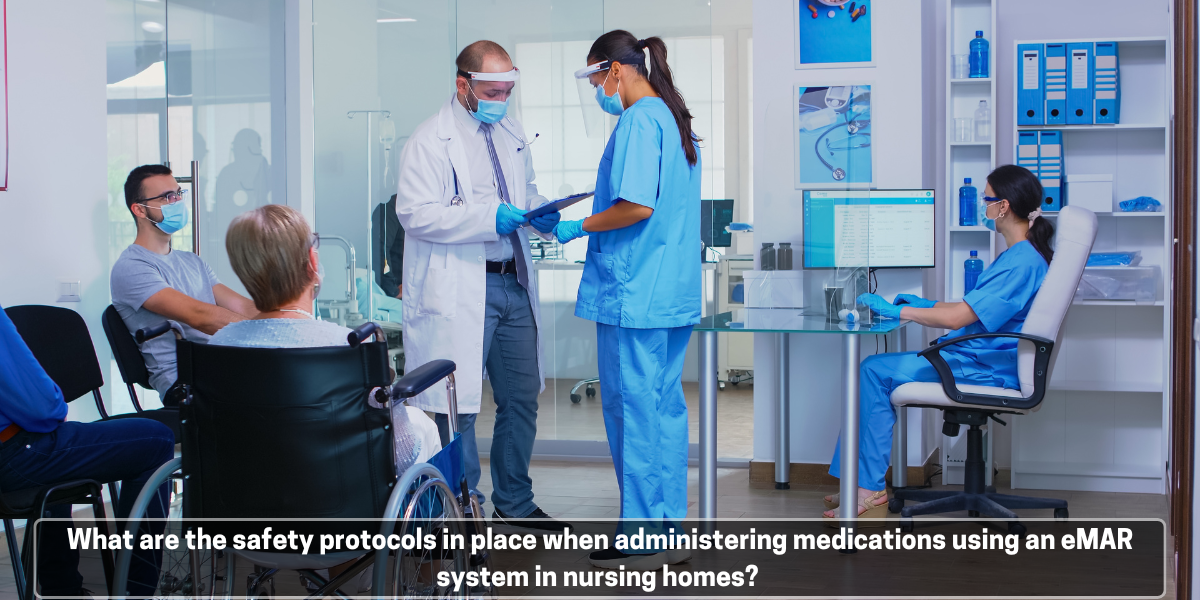Electronic medication administration records (eMAR) systems play a crucial role in enhancing medication safety and efficiency in nursing homes. The implementation of an electronic MAR system reduces medication errors, promotes accurate documentation, and supports high-quality care. To maximise these benefits, staff must strictly adhere to established safety protocols. The following protocols ensure that nursing home staff administer medications safely, accurately, and compliantly:
1. Identity Verification
Staff must verify the resident’s identity by comparing their photograph, full name, and date of birth displayed on the eMAR system before administering medications. This crucial step prevents mistaken identity and ensures that each resident consistently receives the correct medication.
2. Medication Verification
Staff should cross-check each medication listed in the eMAR system against the pharmacy-issued labels to confirm the correct medication name, strength, dose, route, and timing. Such thorough verification helps prevent incorrect medication administration.
3. Secure Access and Data Protection
Staff access to the eMAR system must always involve individual login credentials, including unique usernames and regularly updated passwords. Screens must remain locked when unattended to maintain resident confidentiality, protect sensitive data, and comply fully with GDPR regulations on data security.
4. Timely and Accurate Documentation
Staff must document every administered medication immediately in the eMAR system. They must clearly note any medication refusals or medications withheld, including detailed reasons. Accurate records ensure continuity of care and help during audits or inspections.
5. Alerts and Warnings
Staff must attentively observe and promptly respond to automated alerts within the eMAR system, including allergy warnings, drug interaction notifications, or unusual dosages. When uncertain, staff must immediately seek clinical guidance to mitigate risks.
Medication safety in nursing homes depends on well-trained staff, regular audits, and a supportive work environment. The eMAR system plays a key role, but its success relies on how well staff understand and follow safety protocols. For this, comprehensive training is essential. Nursing and care staff must receive thorough initial training and regular refresher sessions. Also, competency assessments ensure that they use eMAR correctly and confidently. This helps them handle complex medication administration safely and efficiently. Without proper training, mistakes can happen.
Regular audits are just as important. These checks ensure staff follow eMAR protocols and help identify errors, training gaps, or compliance issues. When audits reveal problems, quick action—such as extra training or process improvements—keeps medication management safe and effective.
A positive workplace culture also makes a big difference. Staff must feel safe reporting medication errors or near misses without fear of blame. The eMAR system allows easy documentation of these incidents, ensuring nothing gets overlooked. Investigating errors helps uncover root causes and prevents similar mistakes in the future. Instead of punishing staff, nursing homes should focus on learning from errors and improving processes.
Also, nursing homes must have clear contingency plans for eMAR system downtime. Staff must follow established procedures for manual documentation and ensure smooth transitions between electronic and manual systems.







